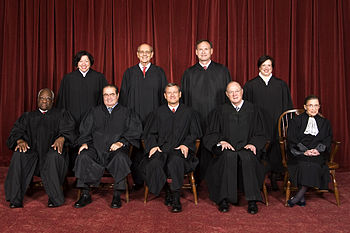Ian D. Jones
@IDJONESPHOTOG
It seems as though every minority group in the country has been under attack or scrutiny in the past year, and I thought, “surely the disabled are safe.”
… Then they came for the disabled, at first in isolated incidents, then apparently wholesale.
The American Civil Liberties Union—full disclosure: I’m a member—is speaking out about House Resolution 620 (H.R. 620,) which purports to fix problems with the Americans with Disabilities Act of 1990 (ADA.)
The original text of the ADA sets out rules for how architectural barriers to buildings should be avoided, if possible. Instead of protecting the disabled population, the ACLU says H.R. 620 prevents “people with disabilities from immediately going to court to enforce their rights and to press for timely removal” of architectural barriers that impede access to “public accommodations.”
The resolution amends the existing text to add, in part, “A civil action … based on the failure to remove an architectural barrier to access into an existing public accommodation may not be commenced” unless certain criteria, including a 61-day waiting period for the complainee to respond, are met.
That’s a lot of time.The bill has a lot of support from organizations like the American Hotel and Lodging Association, the National Association of Theatre Owners, and the International Council of Shopping Centers.
Some examples of “public accommodation” as defined in the ADA would be restaurants, hotels, theaters and retail stores. You know, types of businesses that are represented by the same groups I just mentioned. This disturbs me.
If a lift or elevator were out of service for the foreseeable future at any of those types of businesses, it would cut out a substantial number of people — and potential revenue, potentially for a lengthy period.
If a high traffic business like a hotel could essentially take its time to repair or resolve an issue, it just seems like asking for trouble. I’d think it would be bad business sense to not hurry the process along.
I’m reminded of a date I once had, where the wheelchair lift was out of commission. Lucky for us, that wasn’t a big deal. The restaurant had a table where we could both sit. If I’d made reservations for that evening and found the lift out of order and no alternative accommodations available, I’d have to reschedule my date, and hope the lift would be working next time.
Take Las Positas: as the campus grows, naturally, the on-campus disabled population grows too. Now: There are several buildings on campus with elevators, and one being built. If one of those elevators were totally out of commission and there was a legal 61 day waiting period for the college district to respond, a lot of people would have no choice but to take the semester off.
61 days is a sizeable chunk of time. The ADA has its problems, but this would only make it less efficient. It would only serve companies’ interests and not the interests of the average Joe. Leave the Americans with Disabilities Act alone, please.



